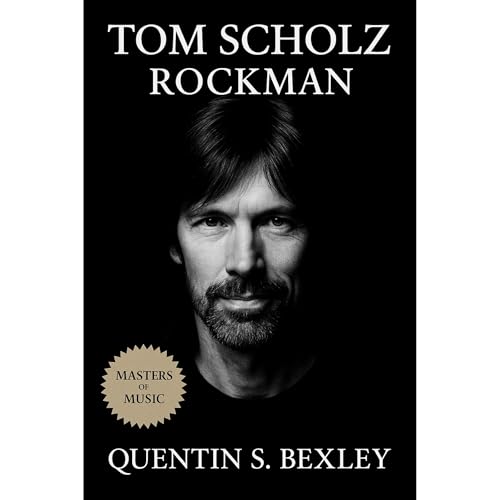
Tom Scholz: Rockman
The Definitive Biography of Boston’s Engineer-Musician, His Sonic Innovations, Rockman Legacy, and the Home-Studio Revolution that Changed Music Forever
No se pudo agregar al carrito
Add to Cart failed.
Error al Agregar a Lista de Deseos.
Error al eliminar de la lista de deseos.
Error al añadir a tu biblioteca
Error al seguir el podcast
Error al dejar de seguir el podcast
Compra ahora por $6.99
-
Narrado por:
-
Virtual Voice

Este título utiliza narración de voz virtual
Tom Scholz is one of rock’s most paradoxical figures: an MIT-trained engineer who turned his Watertown basement into the launchpad for Boston, the best-selling debut album in rock history. This sweeping biography follows Scholz’s life chronologically, from his Toledo childhood of piano lessons and model airplanes to his years at MIT, where engineering discipline fused with a growing fascination for guitar tone. At Polaroid, he learned the problem-solving methods of laboratory work by day, while by night he soldered circuits, layered guitars, and built a sound that would change FM radio forever.
The book reveals how Scholz’s perfectionism birthed both triumph and turmoil. The clandestine production of Boston’s debut album in his basement upended industry orthodoxy, proving that a home studio could rival million-dollar facilities. As “More Than a Feeling” dominated charts in 1976, Scholz wrestled with live touring demands, industry deadlines, and the growing gulf between his meticulous pace and corporate timetables. Lawsuits with Epic Records, struggles over creative control, and years of delay underscored his insistence that artistry could not be rushed.
Scholz’s innovations extended beyond songwriting. His Rockman guitar processors, patented in the early 1980s, gave players worldwide access to his signature tone, making his engineering contributions as influential as his anthems. Later albums like Third Stage (1986) vindicated his patience by topping charts a decade after the debut. Even as critics debated whether Boston’s sound was too polished, Scholz defended his craft, insisting that warmth and precision could coexist.
The biography also delves into Scholz’s philanthropic commitments. Royalties funded his foundations supporting animal rights and humanitarian causes, revealing a man who transformed technical success into broader ethical action. Tracing his touring resurgence, band lineup shifts, and the devastating loss of vocalist Brad Delp in 2007, the narrative captures both the triumphs and the tragedies.
Finally, the book situates Scholz within the broader history of recording technology. His basement innovations foreshadowed the digital home-studio revolution of the 2000s, where laptops and DAWs gave independence to a new generation of musicians. Scholz remains both inspiration and challenge: proof that autonomy and engineering rigor can redefine music, and a reminder that patience and control carry costs as well as rewards.
Rich in archival detail and cultural context, this is the definitive, documentary-grade portrait of Tom Scholz. Readers will come away understanding not only how Boston’s sound was built, but also how one man reshaped the relationship between music, technology, and artistic independence.


